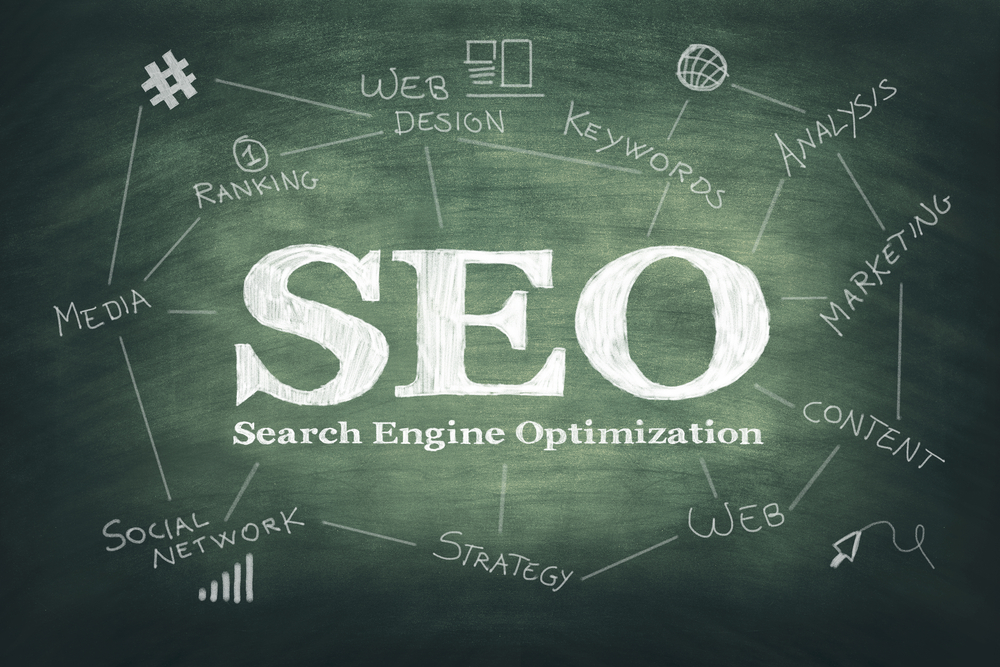
Boost Your Website's Ranking: Proven SEO and Link Building Tips

In today's digital landscape, having a strong online presence is vital for any business. A well-optimized website can significantly boost your organic traffic, attract more potential customers, and ultimately improve your conversion rates. This is where SEO (Search Engine Optimization) comes into play. By implementing effective SEO strategies, you can enhance your website's visibility in search engine results pages (SERPs) and drive more targeted traffic to your site. In this article, we will explore proven SEO and link building tips that can help boost your website's ranking.
1. Create High-Quality, Relevant ContentContent is the foundation of any successful SEO (search engine optimization) campaign. When it comes to content creation, it's crucial to focus on quality rather than quantity. Your content needs to be informative, unique, and engaging, providing value to your readers. By publishing high-quality content regularly, you can establish your website as an authority in your niche and attract natural backlinks from other websites. Remember to include relevant keywords naturally throughout your content to optimize it for search engines.
2. Optimize On-Page Elements
On-page optimization plays a crucial role in improving your website's visibility in search engine results. Start by conducting thorough keyword research to identify the terms and phrases your target audience is using to search for products or services similar to yours. Integrate these keywords into your title tags, meta descriptions, headers, and within the body of your content. Additionally, optimize your URLs, use descriptive alt tags for images, and ensure your website has a responsive design that provides an optimal user experience across different devices.
3. Build High-Quality Backlinks
Backlinks, also known as inbound links, are links from other websites that direct users to your website. They are an essential aspect of off-page optimization and can significantly impact your website's ranking in search results. However, it's important to note that not all backlinks are created equal. Quality trumps quantity in this case. Focus on obtaining backlinks from reputable and authoritative websites within your industry. Look for opportunities to guest post, collaborate with influencers, or participate in relevant forums and communities to build your backlink profile.
4. Improve User Experience
User experience (UX) is a crucial factor in determining a website's ranking on search engines. Search engines aim to provide the best results to their users, and a positive user experience is a significant factor in achieving this goal. Ensure that your website loads quickly, is mobile-friendly, and easy to navigate. Optimize your website's architecture and internal linking structure to improve user experience and help search engine crawlers better understand your site's content.
5. Leverage Social Media
Social media platforms provide an excellent opportunity to promote your website, engage with your audience, and build your online presence. As search engines increasingly consider social signals, such as likes, shares, and comments, being active on social media can positively impact your website's ranking. Share your content across relevant social media channels, encourage engagement, and build relationships with influencers in your niche. This can help generate more visibility and natural backlinks to your website.
6. Stay Updated with SEO/SEM Trends
The SEO landscape is continually evolving, and it's essential to stay up to date with the latest trends and algorithm updates. Search engines often make changes to improve the quality of search results, and keeping your website aligned with these updates can help maintain or improve your rankings. Stay informed through reputable SEM/SEO blogs, forums, and industry news sources to ensure you are implementing the most effective strategies for your website.
Frequently Asked Questions (FAQs):
Q1. How long does it take for SEO strategies to show results?A1. SEO is a long-term investment, and the time it takes to see results can vary depending on several factors, such as the competitiveness of your industry, the age of your website, and the quality of your SEO (or SEM) efforts. Generally, it can take anywhere from a few months to over a year to start seeing improvements in your website's ranking.
Q2. Can I boost my website's ranking by buying backlinks?
A2. Buying backlinks goes against Google's guidelines and can result in severe penalties for your website. It's crucial to focus on building high-quality, organic backlinks through legitimate techniques, such as guest posting and collaborating with industry influencers. Quality backlinks from reputable sources are more valuable in the long run.
Q3. Should I stuff keywords into my website's content?
A3. Keyword stuffing is an outdated and frowned-upon SEO technique. Instead of stuffing keywords in your content, focus on creating high-quality, informative content that naturally incorporates relevant keywords. Search engines have become sophisticated enough to recognize keyword stuffing and may penalize your website for such practices.
Q4. Is social media important for SEO?
A4. While social media signals are not direct ranking factors, having a strong social media presence can indirectly impact your website's ranking. By utilizing social media platforms effectively, you can increase brand visibility, engage with your audience, and generate more natural backlinks, all of which can positively influence your website's ranking.
Q5. Is it necessary to hire an SEO agency to improve my website's ranking?
A5. Hiring an SEO agency can be beneficial, especially if you lack the expertise, time, or resources to implement effective SEO strategies yourself. An experienced agency can provide expert guidance, conduct in-depth keyword research, optimize your website, and help you build high-quality backlinks. However, if you have the knowledge and resources, you can also implement SEO strategies independently.
In conclusion, improving your website's ranking requires a combination of effective SEO techniques and link building strategies. By creating high-quality content, optimizing on-page elements, building authoritative backlinks, improving user experience, and leveraging social media, you can enhance your website's visibility, attract more organic traffic, and ultimately boost your online presence. Stay updated with the latest SEO trends, adapt as needed, and be patient, as SEO is a long-term process.
Other useful resources
- https://www.seoguru24.com/listing-category/seo-tools-and-services/
- https://en.wikipedia.org/wiki/Search_engine_optimization